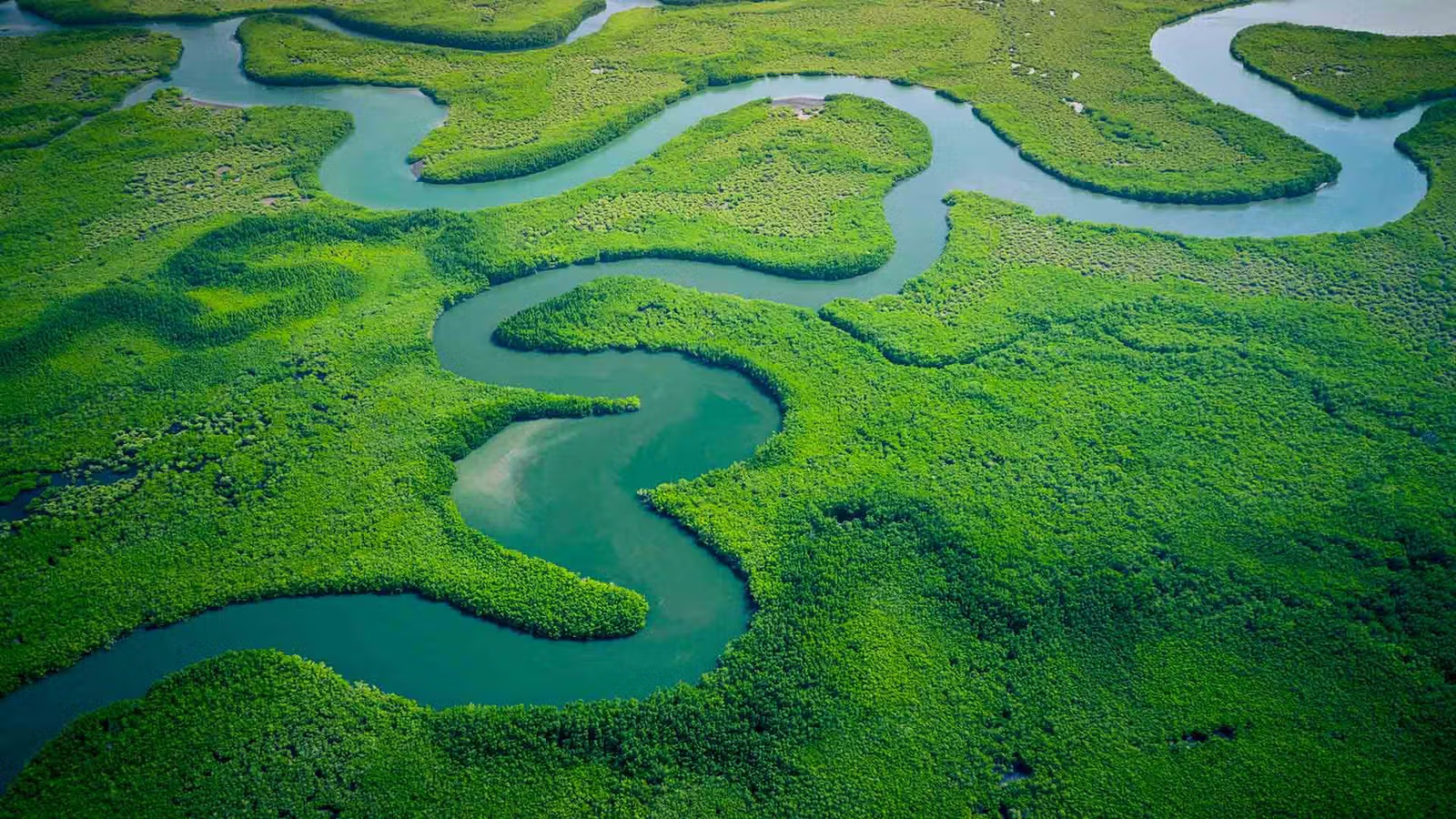
We’re taking action on nature in five main ways:
Maintaining our deforestation-free sourcing
Growing ingredients more sustainably
Protecting and restoring nature
Improving water security
Acting together for nature
A new approach to nature
A new approach to nature
The world – and our business – depends on resilient natural and agricultural ecosystems to thrive.
Restoring and regenerating nature is also one of the most powerful tools in addressing climate change, reversing biodiversity loss and improving livelihoods.
But for this to happen, the world’s collective mindset needs a radical reset.
A business-critical resource
A business-critical resource
We both depend on and affect the natural world across our value chain.
The loss of biodiversity, degradation of soil, and increasing water scarcity pose increasing challenges for Unilever and the people we work with.
We have an opportunity to help to protect and regenerate nature, within and beyond our business, to improve our own resilience and that of our supply chain.
Furthering our impact
Furthering our impact
We have stretching goals in place to help us become a better steward of nature.
These focus on areas where we know we can have an impact and deliver the best possible outcome for both the people and planet in our value chain:
- Regenerating and reshaping agricultural systems to benefit soil health, water and biodiversity, while also addressing climate change
- Working closely with others to protect and restore natural ecosystems, including forest preservation and water stewardship
An interconnected approach
An interconnected approach
To deliver on our goals, we’re taking a multipronged and often interlinked approach: investing in people and communities, in-field practical action, partnerships with governments, NGOs and other businesses, technology, and advocacy.
Moving forward in one area often has a knock-on effect on another: our work to build smallholder hubs in our palm supply chain is not only supporting our sustainable sourcing goal. It's also helping smallholders and their communities adapt to climate change and become more resilient.
Partnering for impact
Partnering for impact
We can only meet our goals by working closely with others.
The smallholders and communities who grow the crops we use and the suppliers who sell them.
And the NGOs and governments who can amplify impact to protect ecosystems and promote regenerative practices.
Close collaborations – such as with ambitious businesses and coalitions aimed at ensuring the value of nature is better reflected in our economic system – are the key to our success in doing more for nature, faster.
Our five nature-focused goals
Maintain no deforestation across our primary deforestation-linked commodities
95% volume of key crops to be verified as sustainably sourced by 2030
Implement regenerative agriculture practices on 1 million hectares of agricultural land by 2030
Help protect and restore 1 million hectares of natural ecosystems by 2030
Implement water stewardship programmes in 100 locations in water-stressed areas by 2030
To help us move towards these goals, we’ve committed to investing €1 billion by 2030 into climate, nature, and resource efficiency projects through our Climate & Nature Fund.
See our Annual Report for progress against our goals (PDF 16.16 MB)
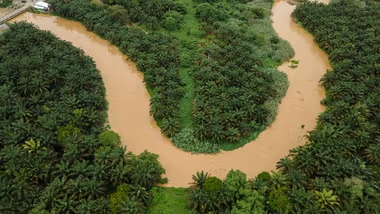
Making good progress
In 2024, 97% of our order volumes across our primary deforestation-linked commodities were independently verified as being deforestation-free.[a]
Together, these five key commodities most associated with deforestation account for more than 65% of our total impact on land.

Interconnected solutions
To maintain deforestation-free sourcing, we're building new skills in our supply chain and investing in new infrastructure. We're:
- Working with farmers, suppliers and communities to improve farming practices and livelihoods
- Partnering with technology providers to enhance traceability and transparency and monitor deforestation risk
- Investing €218 million in Unilever Oleochemicals Indonesia (UOI) to directly source deforestation-free palm and palm kernel oil. Working with others to protect and restore nature connected to our supply chain and beyond

Working together for wider change
Crucially, we’re also collaborating with governments, NGOs and other partners to push for wider change and faster progress in this critical area.
- We’re founding members of the Roundtable on Sustainable Palm Oil.
- We’re members of the Forest Data Partnership.
- We helped launch the Tropical Forest Alliance.
- We're calling for fairer market conditions for certified deforestation-free commodities grown by smallholder farmers.

How we’re supporting more sustainable palm oil sourcing in Sumatra
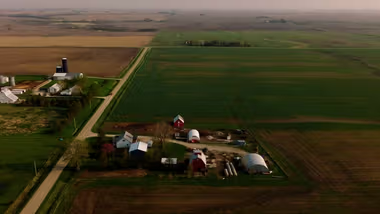
Changing how our crops are grown
Agriculture is the backbone of our business. To help protect soil health, preserve water, restore nature and biodiversity, and build a more resilient supply chain, we’re changing how our key crops are grown. This means reinforcing sustainable sourcing across our supply chain and helping farmers move to more regenerative agricultural practices.
Towards more sustainable sourcing
Sustainable sourcing is at the root of agricultural resilience and a more stable and efficient food supply. For more than 10 years, we’ve been working with suppliers and farmers to buy sustainably grown crops.
We cover 12 key crops groups such as palm, soy, vegetables and herbs, cereals, and dairy products. Together, these account for more than 75% of our total sourced agricultural volume. In 2024, 79% of our 12 key crops were sourced sustainably.
In 2024, we raised the benchmark with the release of our updated Sustainable Agricultural Principles (SAP) (PDF 4.29 MB), which underpin our programme. As set out in the SAP, we verify our key crops as sustainable using a range of widely recognised benchmarked certification programmes and standards.

Growing regenerative agriculture
We’re working to bring our Regenerative Agriculture Principles (PDF 8.34 MB) to life. This means supporting farmers and suppliers as they establish practices like cover cropping and crop rotation, reducing tillage and using natural alternatives to synthetic fertilisers.
As one of the world’s largest food businesses, we want to lead the way in this area. To date, we have 23 active regenerative agriculture projects that collectively cover almost 130,000 hectares. We have plans in place to reach more than 200,000 hectares in 2025. Our initial projects have shown encouraging results after the first few years.

Partnerships for progress
We depend on a network of partners across Latin America, Europe and the US to make our regenerative agriculture projects happen. We work with agricultural experts and implementation partners to boost farmers’ capabilities and capacity. And with our technology partners, we’re using advanced technologies to collect farm and supply chain data and measure progress.
- We’re partnering with NASA Harvest to use satellite technology, remote sensing and soil data to measure the adoption and impact of regenerative agriculture.
- We’re working with Nature Metrics to use environmental DNA sampling to measure soil changes and insect biodiversity in our supply chain.

Broadening our reach
Our aim is to create changes in agricultural practices that go far beyond Unilever. So we’re working openly with businesses that share our suppliers, such as PepsiCo in Iowa, to pool resources and scale projects – and ultimately amplify the impact of our programmes.
Through our Climate & Nature Fund, we’ve joined forces with AXA and Tikehau Capital to create the Regenerative Agriculture Fund. This impact fund will invest to help land restoration and regenerative agriculture grow at scale.
We're also asking governments to help farmers move to regenerative agricultural practices by offering access to finance and innovative technologies, and by developing large-scale capacity-building programmes.

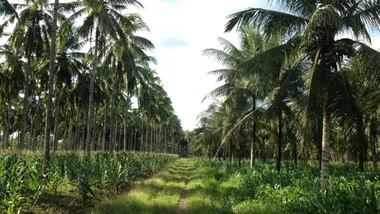
Landscape programmes
Unilever is investing in landscape programmes in areas where we source forest-risk commodities.
Programmes in Indonesia and Malaysia have included planting trees, restoring degraded land, protecting natural ecosystems, and certifying plantations and small farms as sustainable (RSPO). They involve working with a range of people and partners on the ground to create shared understanding and actions to protect ecosystems.

Partnerships for change
Much of our progress in protecting and restoring nature comes from working with local experts, as well as with advocacy and investment partners.
- Our partner WWF-Malaysia is helping local organisations support nature by preserving key plant species, restoring riverside reserves, and creating wildlife corridors.
- Through Business for Nature, more than 100 business and financial institutions are pushing governments to implement and enforce ambitious nature policies.
- Supported by our own Climate & Nature Fund, the Rimba Collective is working with NGOs, governments and conservation experts to protect and restore over 500,000 hectares of forests in South East Asia over the next 30 years. With the Rimba Collective, Dove is helping protect and restore 123,000 acres (49,776 hectares) of rainforest in South East Asia by 2028.

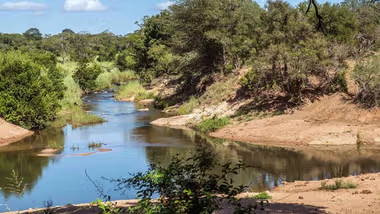
Improving water security
Not only is water a critical tool in mitigating and adapting to the effects of climate change, it’s essential for our business – from growing crops to manufacturing and to people using our products. So we’re focusing on water-stressed areas where we operate and can make a difference by becoming better stewards of water – and helping others do the same.
Within and beyond our factory walls
We’ve made good progress in reducing water use in our factories, and are now working to improve water security beyond factory walls through water stewardship programmes.
By the end of 2024, we had implemented 21 water stewardship in water-stressed areas such as Brazil, Turkey and South Africa. We’re working with the Alliance for Water Stewardship to encourage nearby organisations to improve their water efficiency – by reusing and recycling water, for example – and protect the shared aquifer.
In India, we’ve worked with manufacturing sites and communities to address gaps in water supply and demand – supporting almost 3 million people through initiatives like irrigation, rainwater collection and more water-efficient farming. We’re taking the knowledge and experience we’ve gathered from our Prabhat programme and applying it in other places.

Partnering to protect water
We can do more to protect and steward this precious resource by working closely with others, such as industry peers, local experts, NGOs and governments. We are a member of the Alliance for Water Stewardship, which is a coalition to push for water to be included in national climate adaptation plans, and to help our manufacturing sites address water risks.

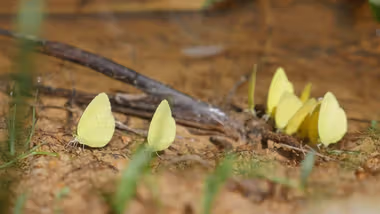
Our other sustainability priorities

Plastics
We’ve been working hard to create a circular economy for plastic packaging for a number of years. We’ve learnt that transformation takes time. Given the size of this challenge, we’re using our innovation capabilities to find new, scalable solutions.

Climate
Climate action has long been a part of how we do business. But the world must move faster to avoid the worst effects of climate change. We've set more ambitious climate targets and identified clearer actions to respond to this challenge.

Livelihoods
The impacts on inequality go far beyond income – to health, human rights and economic growth. So we're working to improve the livelihoods of people in our global value chain.
Meaning that none of our direct supply of these commodities is linked to land that’s been deforested since 2015.
